Tuesday December 5th
John Hopkins APL and Flight Software Workshop (FSW)
Hello from Maryland!
- I’m staying at a really nice hotel about six minutes’ walk from the South Campus of John Hopkins APL.
- The APL is the Applied Physics Lab, which is located in Laurel, Maryland.
- They’re involved in all sorts of projects, particularly for Space.
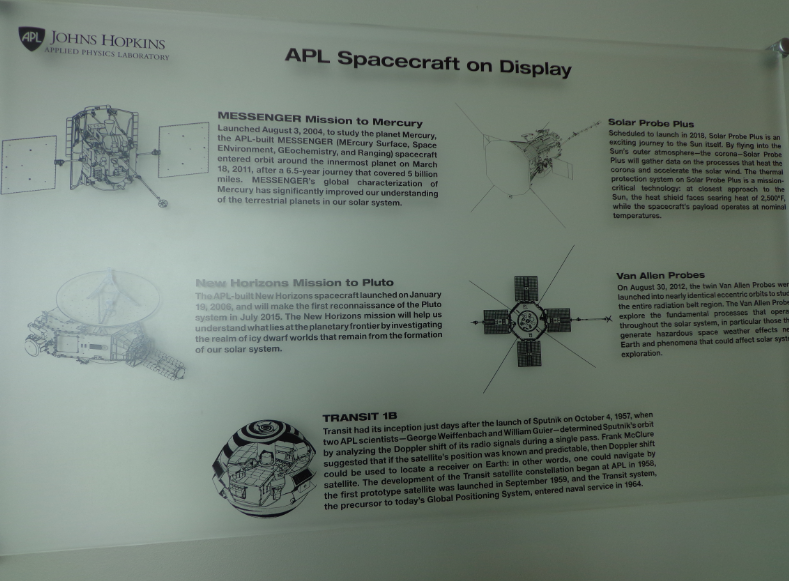
- Here are some of the units (models) from their main lobby
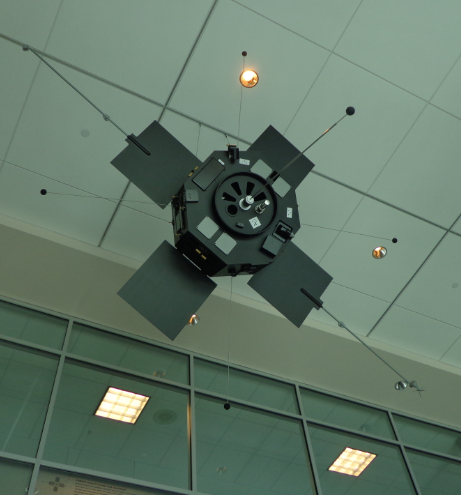
- Van Allen Probes
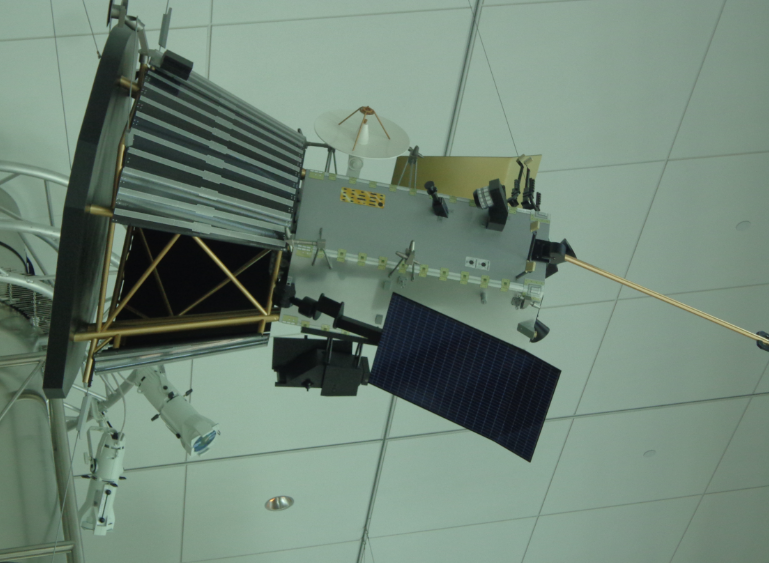
- Parker Solar Probe
So….what’s this FSW?
- The Flight Software Workshop (now in its 10th year) is a meeting of organizations like APL, NASA centres, etc, to talk about and present on Software for things like autonomous missions. It started out small; literally a bunch of engineers sitting around eating a box of pizza, talking. Now, it’s limited to 120 participants every year. Anyone is able to attend, but for some strange reason, I was one of only two students who attended. So it was pretty neat; I was surrounded by some really knowledgeable people!
Wait what? How did you find out about it?
-
I honestly..don’t know. I think about a year and a half ago, I stumbled upon it online. I had just done a four-day workshop at JPL and was looking for an opportunity to learn Ada or something. This happens a lot with me, btw. I get really interested in something and I find all sorts of stuff. I guess I’m one of those people who “reads the footnotes”. :)
-
Was it worth it? Hell yes! I learned a lot, met some amazing people, and increased my skill-set. I knew not a lot about any of this before; it opened a whole new world to me, and made me aware of some things I hadn’t been before. A lot of these people are excellent at C, C++, Rust, Ada. The way they think about programming is quite different from say, a web developer. So that’s definitely worthwhile. I wish these groups of people would intersect more.
-
They have cubesats that run on JavaScript, but it made me wonder, if they care about things like type checking and resolution of types, if something like PureScript could run on a cubesat.
The first day
- We had presentations on CFS, which is the Core Flight System. It is NASA Goddard’s baby. I hadn’t heard of it before, but it used quite heavily internally by many such centres. I’ve also heard that JPL sort of wants to do its own version…JPL..the rebel..haha. So since that’s the closest NASA centre to me, sort of makes sense that I hadn’t heard of it much :) There were quite a few JPL-ers there as well.
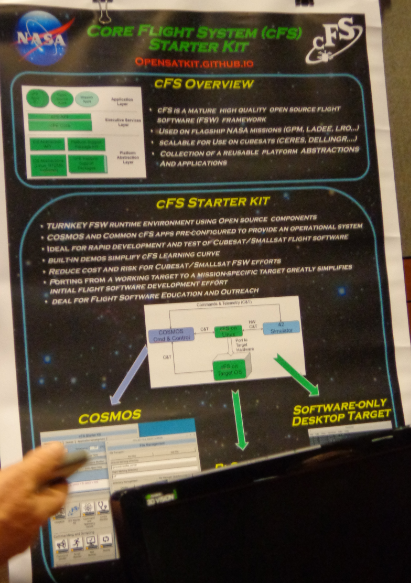
Day 1: Demo Day
- The first day had a series of presentations on various projects using CFS. There was even a simulation showing one satellite that joined another one’s orbit, followed by two more.
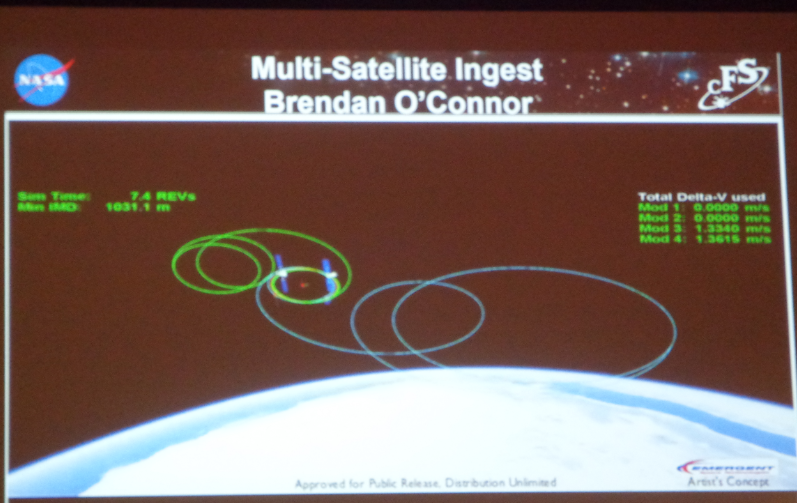
- Also presentations on tools like CMake and how they are used. I was a bit confused by CMake and tools like Nix, so this, along with chatting simultaneously with people on Slack, cleared up in my mind a bit about what each tool can do.
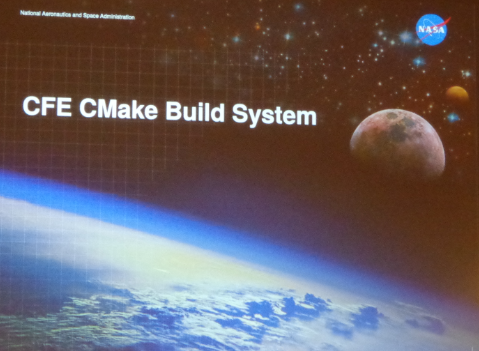
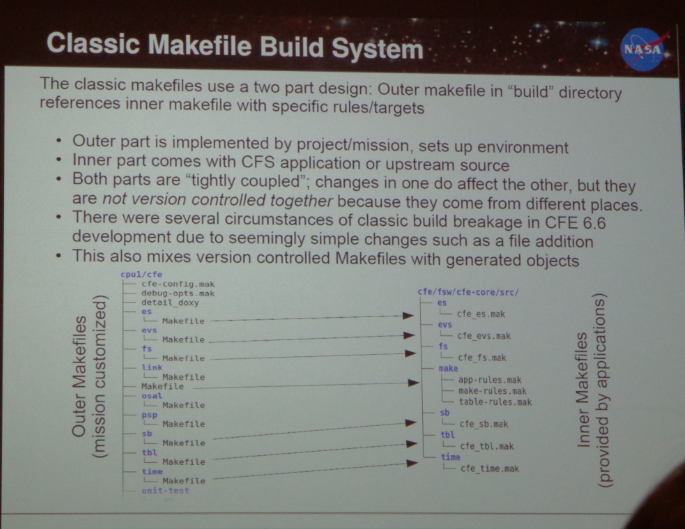
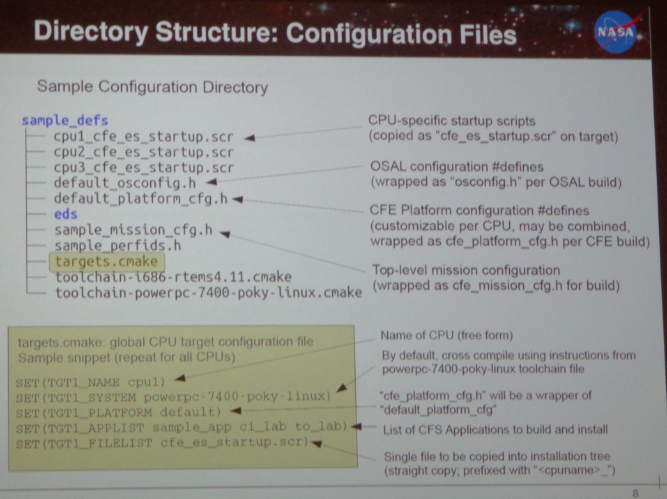
Demo Day
- After the day’s presentations, there were some demos set up. One gentleman from Goddard Space Centre, Alan Cudmore, took painstaking time to show me a Pi-Sat he built using a Raspberry Pi and an Adafruit board, and a camera, with 3D printed parts, and how it interacts with his system
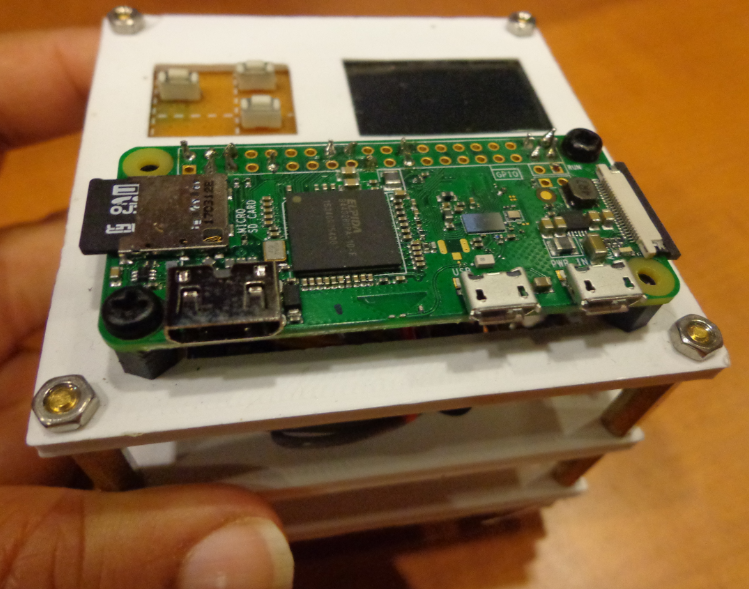
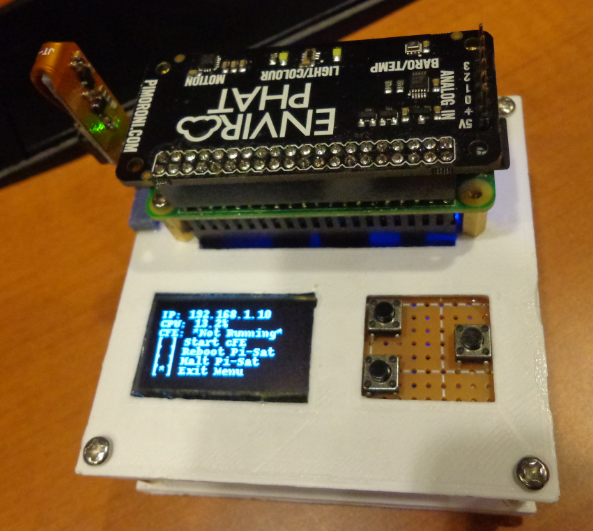
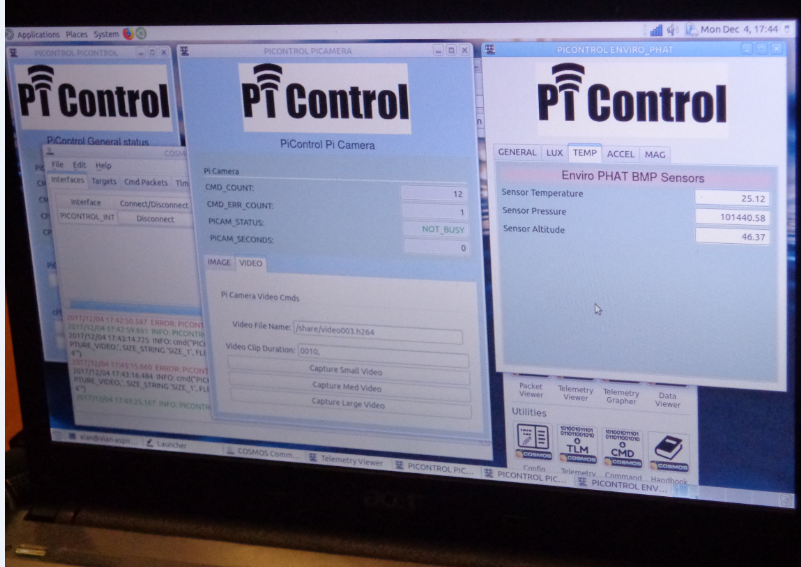
Dinner
- We went out for dinner and I had my first Maryland Alfredo seafood dinner, at this huge bar called Looney’s Pub

- I learned about this thing called a Dogfish Head 90 minute. I don’t drink or anything, but I had no idea people were so serious about their beer!
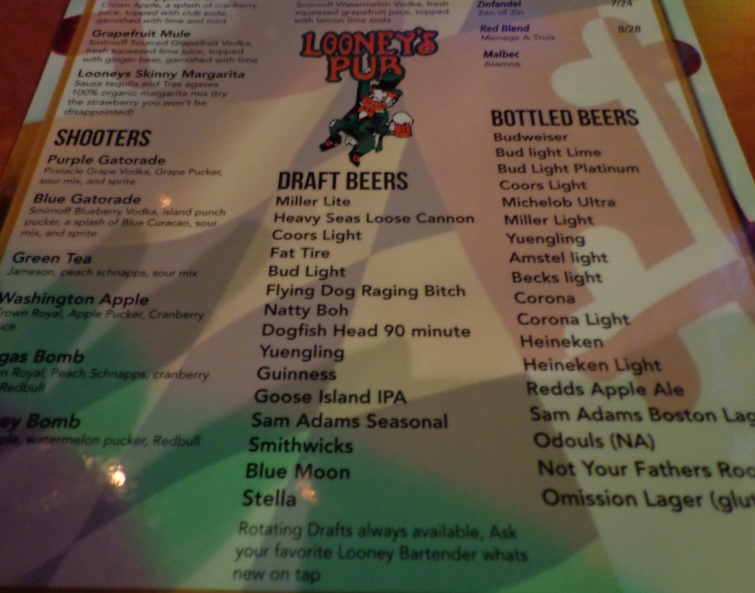

- Glow in the dark beer list!

- This caught our eye..there’s a fish sleeping in the skull!
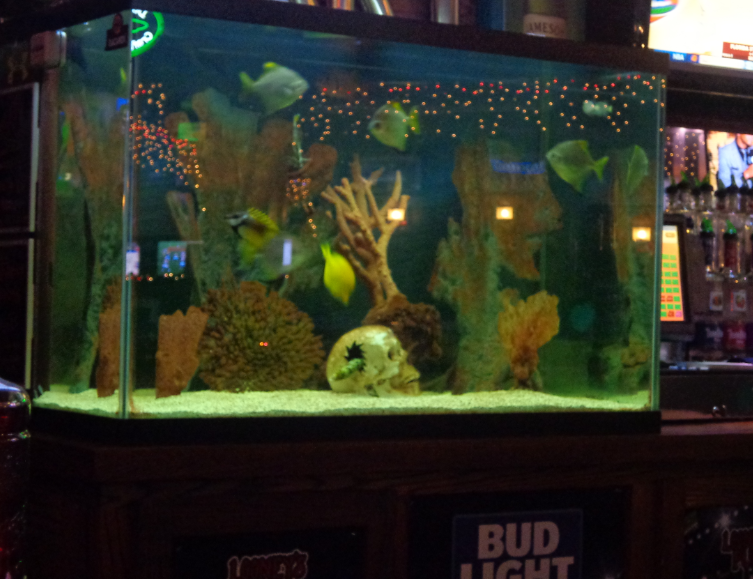
- I was able to check in to the largest hotel room I’ve ever been in. It felt like a condo! There was a stove and stuff!
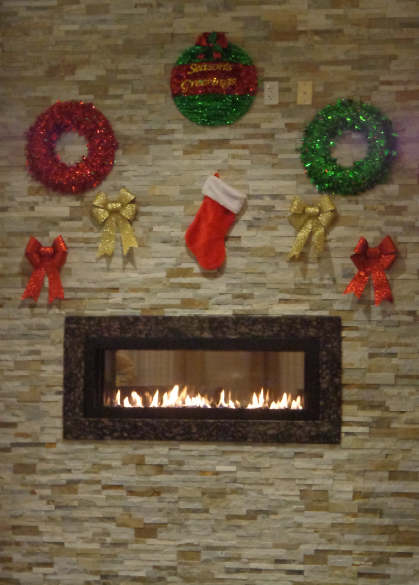
Day two
-
I have an exam on Wednesday, so I couldn’t stay for the entirety of the conference (which runs until Thursday evening), but I really wanted to be able to see this keynote speaker. So I was stoked that his talk was today!
-
His name is Dr. Gordon Roesler, and he works for DARPA. He gave a fascinating talk! It was about GEO-Orbit and creating instruments that can do things like refuel themselves. I also had no idea what a marman ring was before his talk.
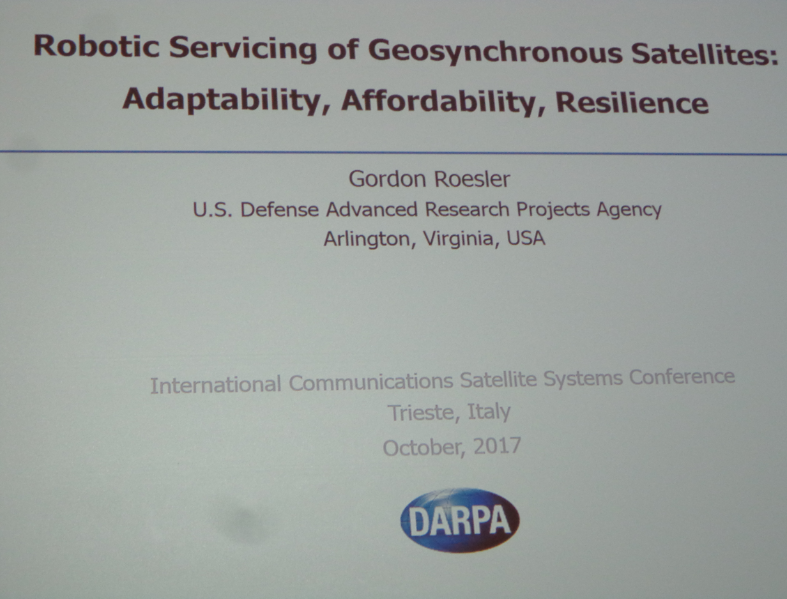
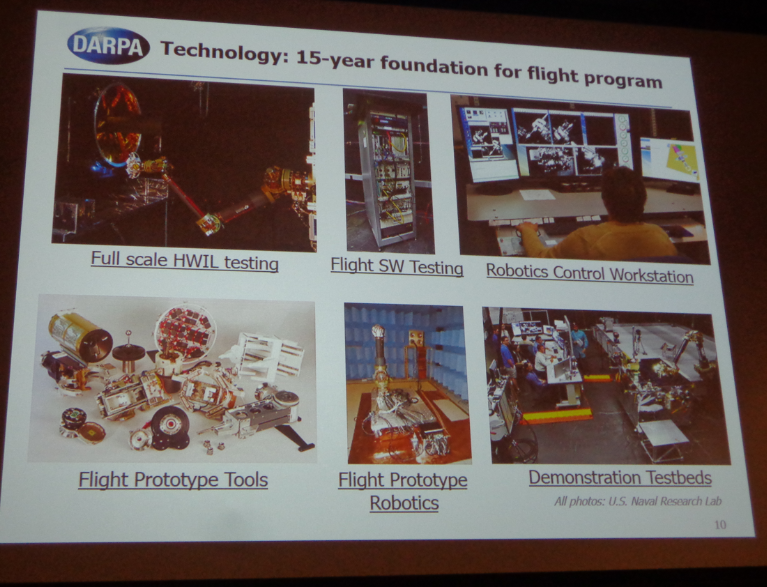
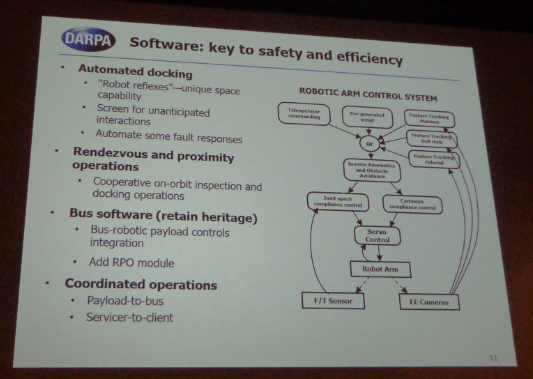
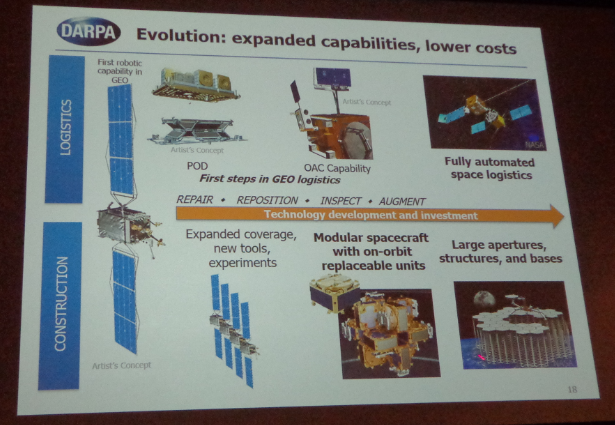
-
The talk after his was a virtual online one from a gentleman in Argentina who spoke about autonomous spacecraft using polytopes. So it would listen via an Event Listener and carry about commands if it is within a defined polytope space (it being a satellite orbiting autonomously in GEO-space).
-
There were also additional talks on Cubesats and ROS
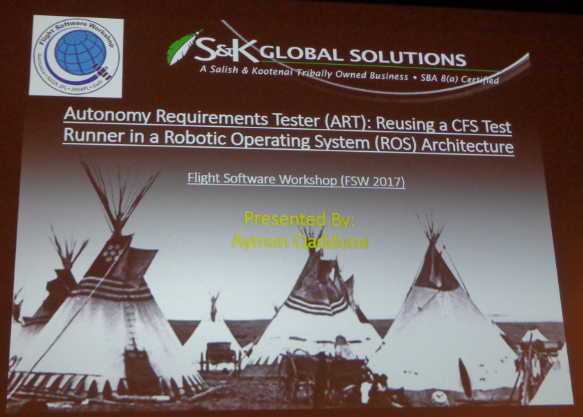
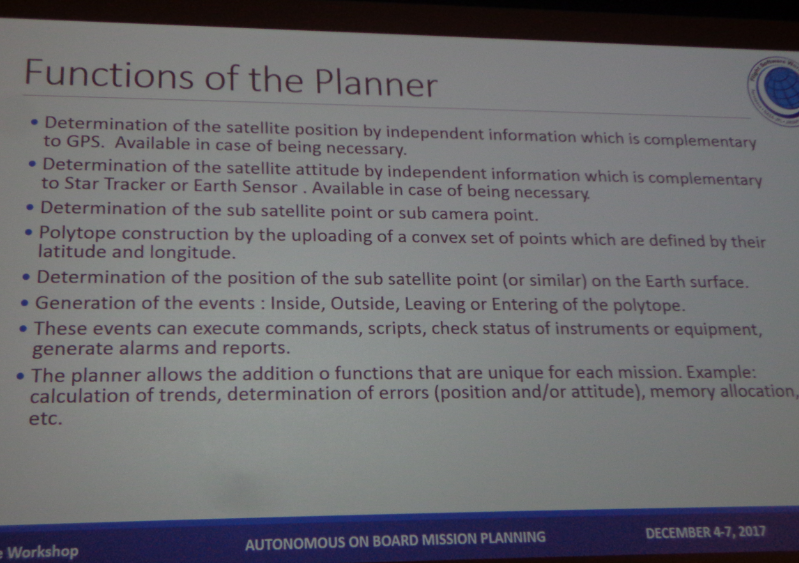
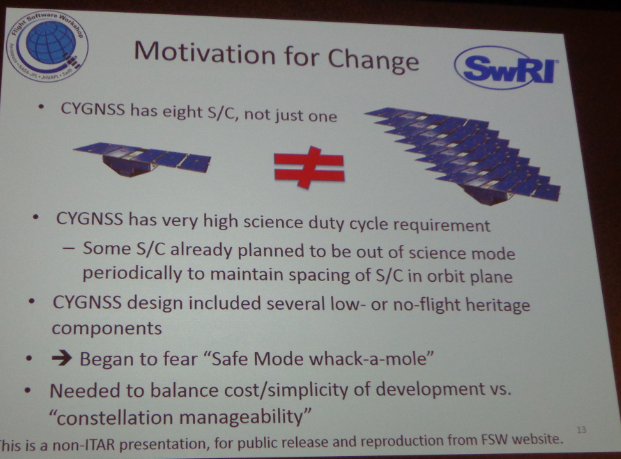
-
On, and this was a fun slide, too.
-
It reads “Questions or Comments”.
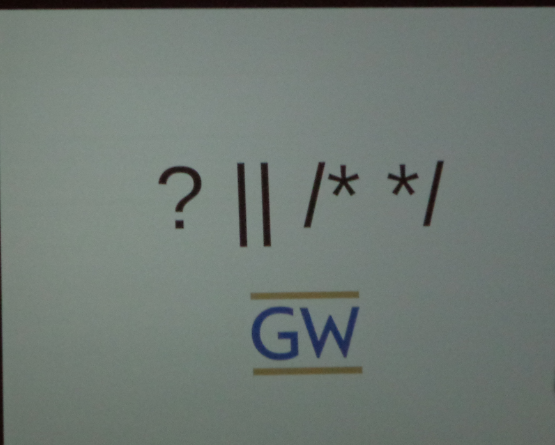
- There was also a Matlab code-challenge in C. It was tricky. I still need to find the error. I took a photo of the code.
I was so tired
- I crashed when I got home the second day (which I guess is still tonight as I’m writing this). I was invited to a Southern food place but I just got it to go. I also finished a Udacity Mentorship course (submitted a project for review), and fell asleep, and got up fifteen minutes before the PureScript livestream!
PureScript Meetup
-
I joined them online. Nathan spoke about Eff vs Aff and how they relate to asynchronous functions and threading in JavaScript, and concurrency in general.
- Aff is for asynchronous effects
-
Eff is for synchronous effects
-
I’m not super familiar with promises and callbacks, and had no idea about how they were handled at run-time, so it was very interesting.
-
He also spoke about Constructors and Fibers in PureScript, and how to kill and clean-up Fibers, which are essentially light-weight threads.
-
He provided representations of the sleep function in Python and of promises and callbacks in JS to demonstrate how they deal with things like multi-threading and concurrency.
- The library he referenced is here
Disappointment
- I was feeling a bit down today because I didn’t do as well on my first C++ exam as I would have wanted. Okay, so there was little to no code involved in that exam, and the questions were just confusing (the wording), but that stuff still gets me down. However, I read this. It’s about dealing with failure and picking oneself up and learning from that. Keep going.
- Anyone who knows me knows I love this stuff more than anything. There is this strange feeling I have sometimes when I try to think about what I could be doing..but I never am, because I’m usually working or putting in some kind of work, or otherwise resting.
-
Usually I get that feeling at 11pm when I’m coming home from class, and there are people around me waiting for a train who have been to a baseball or football game, or went to see a play or went to the Opera. Or the crowd comes in from some big event or party or something. There is that little voice that sometimes says “what if this never pays off for you?”. It reminded me of a neighbour or two who, years ago, asked me if I’d be a “student for life”, or if I was trying to be a professor, because I take classes and they saw me coming home at all hours of the night (I still do based on the class). I forget there is this entire group of people out there who think it’s weird to constantly want to self-improve. As for me, I’ve never had that feeling of “stability” in the US. It’s uncomfortable for me to feel “comfortable”. Every time I do, something tells me to learn a new language or something. Do something..learn something..don’t take these opportunities for granted. You might just miss your opportunity.
-
Thankfully, a lot of my life is online, so it’s helped me to connect more with people who have similar values to mine and don’t judge me for wanting to self-improve or work hard.
- But man, it’s hard when you’re trying to improve yourself, not sure if will ever pay off, and people take pot-shots, joking that you’ll stay in this loop of “taking class forever”. Thankfully, it has only been a few years now since then that things have started to pay off, and some of those very people have said “Good for you” or “I’m proud of you”. Some of them are also shocked that I disappear for a few days, or come back, bag in hand, from a trip. It’s exciting, and I’m very excited to work hard and be a part of the community, but initially, it was tough. It mostly takes a lot of guts to just suck up off-handed comments and keep going, because you want something badly enough. I’m writing this because somewhere, I know that someone is going through a similar struggle..and yes..I still believe that hard work pays off, especially in this country! 100% Absolutely, even though it’s not always in the time-frame you anticipate.
So…
-
It’s almost 2am, and I have a flight to catch in a few hours, so…guess that’s all for now. I have an exam to do tomorrow in the PM, and hopefully start studying for an interview coming up.
-
I’m also going to start “Learn C the Hard Way” and “Haskellbook” pretty soon. Those are my goals. Just to get better in general. C, Python and Haskell. I’ll do interviews in Python, and strengthen my skills in C/C++ and Haskell, until I’m even good enough to do interviews in C++ and Haskell :)
-
Oh, and there needs to be a CubeSat written in PureScript. if no one does it in a few years, I swear I’ll learn some PureScript just to do that.
-
And…that’s it.
Katas
- Return count of uppercase, lowercase, digits and special chars in array of string given. I’ve been trying to be more deliberate in the way I name my variables, writing tests and thinking about edge cases. Also, commenting. So this could have been a lot shorter, but I’m trying to cultivate better habits, with the mindset that someone else has to read my code.
def solve(s):
## Upper, Lower, digits, special chars
## overall count
## uppercase count
## lowercase count
## rest is special chars
## first get len of s
s_length = len(s)
common = "abcdefghijklmnopqrstuvwxyz"
common_list = list(common)
capital = common.upper()
capital_list = list(capital)
numbers = "0123456789"
numbers_list = list(numbers)
capital_count = 0
common_count = 0
number_count = 0
#define arr to store output
arr = []
# this var gets the count of all letters
counted so far
count = 0
# make a list of s to get each char
separately
s_list = list(s)
#print s_list
## loop through and check to see if
each condition is satisfied
for i in s_list:
if i in capital:
count = count + 1
capital_count = capital_count + 1
elif i in common:
count = count + 1
common_count = common_count + 1
elif i in numbers:
count = count + 1
number_count = number_count + 1
special_chars = len(s) - count
## make an array to echo output format
## uppercase, lowercase, digits,
special_chars
arr.append(capital_count)
arr.append(common_count)
arr.append(number_count)
arr.append(special_chars)
return arr
- round up to the next seven. I could have made this easier on myself. However, I am proud that my variable names are getting better :) No var a, var x, var b, var c :)
function roundUpNext7(number) {
if (number % 7 === 0){
return number;
}
else if ((number % 7 <= 3) &&
(number > 0))
{
var num = (parseInt(number / 7)
+ 1) * 7
return num
}
else if ((number % 7 <= 4) &&
(number <= 0))
{
var num = (parseInt(number
/ 7.0)) * 7.0
return num
}
else if (((number % 7 >= 4)) &&
(number > 0)){
var num = number / 7
var modd = number % 7
return(((parseInt(num))
+ 1) * 7)
}
}
- if number is divisble by a and b, return true, else false
function isDivideBy(number, a, b) {
if ((number % a === 0) && (number % b === 0))
{
return true
}
else
{
return false
}
}
- take two arrays and find their sum. You could only choose JS as the language :( I decided to see how to do a concat (zip in Haskell, Python) and reduce (fold in Haskell) lol.
function arrayPlusArray(arr1, arr2) {
const array1 = arr1.concat(arr2)
const reducer = (accumulator, currentValue) => accumulator + currentValue;
return array1.reduce(reducer)
}
